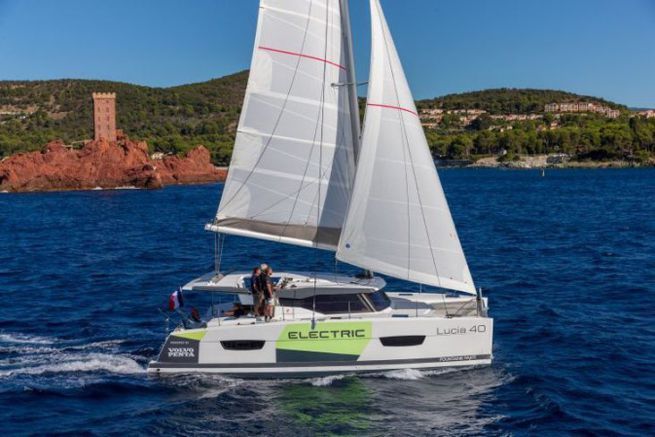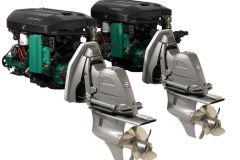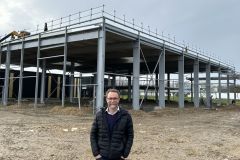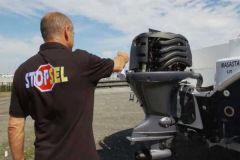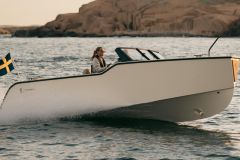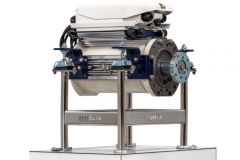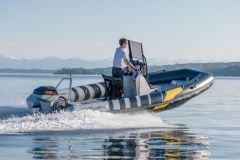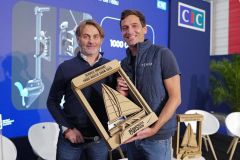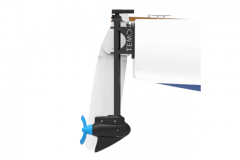World leader in sustainable marine propulsion
As with many in the yachting industry, successive boat show cancellations have led Volvo Penta to turn their back-to-school press conference into an online event. Held on 26 October 2020, it was an opportunity for the new CEO Helene Mellquist, appointed in the summer of 2020, to unveil her vision and plans for the leader in inboard propulsion for recreational boats. The director insisted on 3 key points:
- the service provided by the product to the boater
- sustainable development
- the economic success needed to transform the sector.
" I see us as the world leader in sustainable development in our sector. This means reducing consumption. The IPS system has already led to a 30% reduction. This involves factories and the carbon footprint. We already have a carbon-neutral factory. There are also alternative fuels, hydrogen and fuel cells and our project with Daimler and electromobility already underway. Finally, there is the circular economy, which may come as a surprise to a parts dealer. This is already the case with reconditioned IPS subbases "illustrious Helen Mellquist.
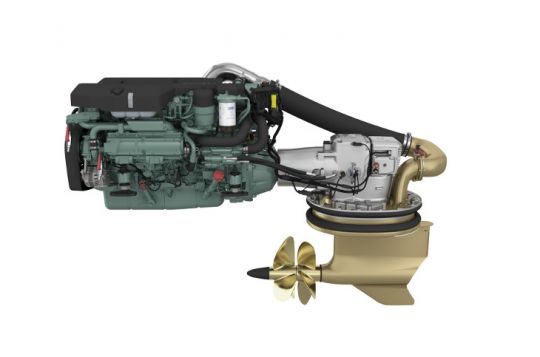
A controlled development of the electric boat
While Volvo Penta recently announced the launch date of 2021 for its electric motor offer for boats, management now prefers to focus on the development methodology for its new propulsion technologies. Deployment will be gradual in order to validate the solutions with partners and OEM customers according to the principles of Learn, Scale Test and Industrialize. " We try out concepts with our OEM partners. We get the feedback. We adapt to the market to meet the needs. This is already what we started with the Automatic Docking or the electric motor of the Lucia 40 [Editor's note: electric catamaran developed with Fountaine-Pajot]" explains Johan Inden, president of Volvo Penta's marine business. The first commercial pilots should have seen the light of day in 2021, but not the standard offer.
Heléne Mellquist also emphasises the customer's expectations of a complete system that goes beyond the engine with a single point of contact and the need for a service offer and maintenance network to be able to launch the product. " Integration becomes the product itself." she says.
Volvo Penta will continue to work on internal combustion engines and the energy density of its platforms. " There will be no binary change "insists the leader.
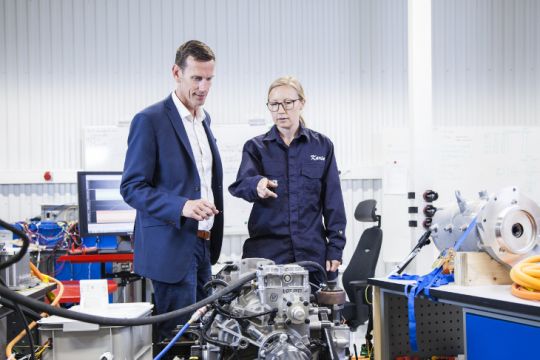
Accompanying and helping the changes in the boating industry
Beyond the engine offering, Volvo Penta sees a role for itself in the change and future of boating. " We have a role in growing the market and keeping new boaters attracted to the freedom of navigation in context. This includes easy-boating and making boating easy, as well as technology and sustainability "stresses Johan Inden.
In the future, solutions will have to be more tailored to the individual boater, with Volvo Penta providing advice and support to both manufacturers and users. " The yachtsman will have to think more: "How do I use my boat?" then choose the number of batteries and the type of propulsion. For us, we will have to think about how to produce to adapt to the needs. "says Johan Inden.
Asked about electric outboards and hydrofoil boats, he concludes " As with other technologies, we will be the support when the OEMs know where the market is going. In the future we will necessarily be even closer to the construction sites. "

 /
/ 